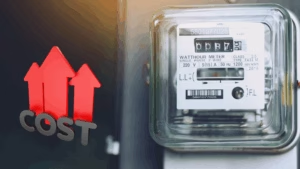One of the most promising sources of renewable source of power is solar. We see an enormous increase in the number of solar panels set up. Several parts make a solar energy system, and an inverter is one of them. They are a valuable part of the solar power system as they convert the energy into a usable form.
Solar panels absorb the sun’s light, which our appliances cannot use as such. Here is where the role of inverters starts. In this blog, we have shared more information about inverters and their energy usage

Working of inverters
Inverters convert the direct current (DC) generated by the solar panels to alternating current (AC), which is essential to power appliances and machinery in homes and industries. They store the excess energy produced in the form of alternating current and power up appliances during times of outage.
Inverters need to be charged regularly to function effectively. They consume electricity in this process.
When does using inverters increase the electricity bill?
Does inverter increase electricity bill? Here are some cases:
Load
When there is heavy load usage, your inverter consumes more power. This happens when many devices and appliances are connected to the inverter. When all the appliances draw power from the inverter, it drains its battery, and to recharge, it consumes more electricity.
Appliance efficiency
Energy-efficient appliances save power, and thus inverters do not consume more electricity. When appliances are not energy efficient, they draw more energy from inverters and hence increase power consumption.
Maintenance
Poor maintenance of appliances and the inverter can lead to more power consumption. When not in condition, they draw more current for functioning effectively, and this leads to a surge in energy consumption.
Battery voltage
When battery voltage is lower, inverters use more electricity to maintain their performance. This is inversely true for higher voltages of the battery. Inverters may not function efficiently if the battery voltage drops very low, as they shut down to protect the equipment.
Ventilation
Without proper ventilation, inverters may overheat. This will necessitate cooling by running the fans in the inverter, which ultimately consumes more power.
Tips to use inverters efficiently
Follow these tips to ensure your inverters do not consume more electricity:
Ventilation
Ensure proper ventilation around your inverter. This will prevent overheating and thereby overworking of the inverters. Place your inverters in shaded areas with enough air to pass through on all sides so that the heat generated during the functioning of the inverters is easily dissipated.
Energy-efficient appliances
Use of energy-efficient appliances reduces power surges and thereby helps the inverter function efficiently. Energy consumption will be considerably reduced as appliances are stable and efficient.
Keeping it off
Try to minimise power consumption by keeping the inverter off when not in use. Though idle power consumption is minimal, it can add up to a significant value when continuously kept on. You should consult your solar installation company to check how safe this can be done without affecting the efficient working of the inverter.
Battery maintenance
Battery maintenance ensures efficient performance of batteries and prevents both over- and undercharging. This will reduce the pressure on the inverters and help them function effectively without any breakdowns. On the whole, it prevents a surge in electricity consumption.
Inverter size
Even for the same load, large inverters may consume more power compared to small ones. This is because they consume some power even while idle. Smaller inverters do not have this issue. However, the inverter size depends on the load you wish to connect for use during outages. You can consult your professional solar company for suggestions on the size of the inverter to ensure efficient energy consumption.
Avoiding standby power use
Many inverter companies offer a standby mode to lower power consumption when not in use. There may be minimal power usage during this time. In case of not using the inverter for a long time, you may unplug it from the power source. This will help save a significant electricity bill.
Conclusion
Inverters are an integral part of solar power systems. They help save energy that can be effectively used during periods of outage. In spite of its remarkable use, will the inverter increase electricity bill, is a question that lingers.
We have outlined the cases when inverters can consume more power and how to prevent the same. Stay aware of these aspects so that you can ensure inverters function efficiently without any power surge.
Frequently Asked Questions
Inverters can lead to high electricity bills when they are not used efficiently, the load is high, or when they aren’t maintained properly.
Typically, home inverters, when idle, consume around 15 to 50 watts, based on their size and efficiency.
The power consumption by inverters is minimal unless it is oversized or the appliances aren’t energy efficient.
The size, appliances connected, maintenance, battery type, cleaning and maintenance, are all factors that affect an inverter’s electricity usage.
Yes, inverters are energy efficient as they optimize the flow of energy, reduce energy wastage, and utilize power as needed.
Yes, charging inverters adds to the power bill, but the amount depends on the actual energy consumption.



